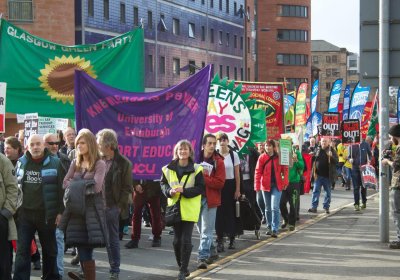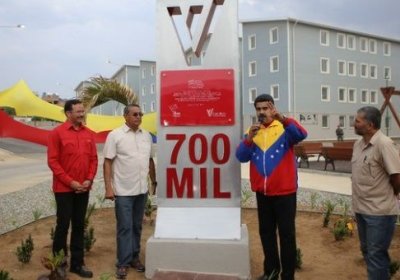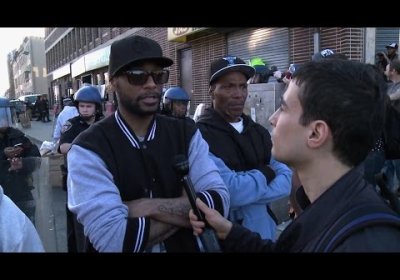Democracy
During the final session of El Salvador's outgoing parliament on April 29, right-wing parties blocked a vote to ratify a constitutional reform that would have enshrined water and food as human rights. In doing so, the bloc of Nationalist Republican Alliance (ARENA), National Conciliation (PCN), and Christian Democrat (PDC) parties demonstrated their support for elite business interests over the health and wellbeing of the Salvadoran people.
Six Baltimore police officers will face criminal charges over the death of 25-year-old African American man Freddie Gray, who died in police custody, prosecutors announced on May 1. Baltimore State Attorney Marilyn Mosby, who said the charges will include manslaughter and murder, added that Gray had committed no crime and was "illegally arrested".
Venezuelan President Nicolas Maduro inaugurated the 700,000th house built under a state-led initiative to provide housing to the most needy Venezuelans on April 17.
Democracy Now! reports from the streets of Baltimore, where an overnight curfew has taken effect following Monday’s riots sparked by the death of Freddie Gray, the 25-year-old African-American man who died of neck injuries suffered in police custody.
In California, the local chapter of the International Longshore and Warehouse Union has vowed to shut down ports on May 1 in a historic protest against police brutality, Democracy Now! reported.
Democracy Now! on the anger that has exploded in Baltimore.
- Previous page
- Page 307
- Next page











